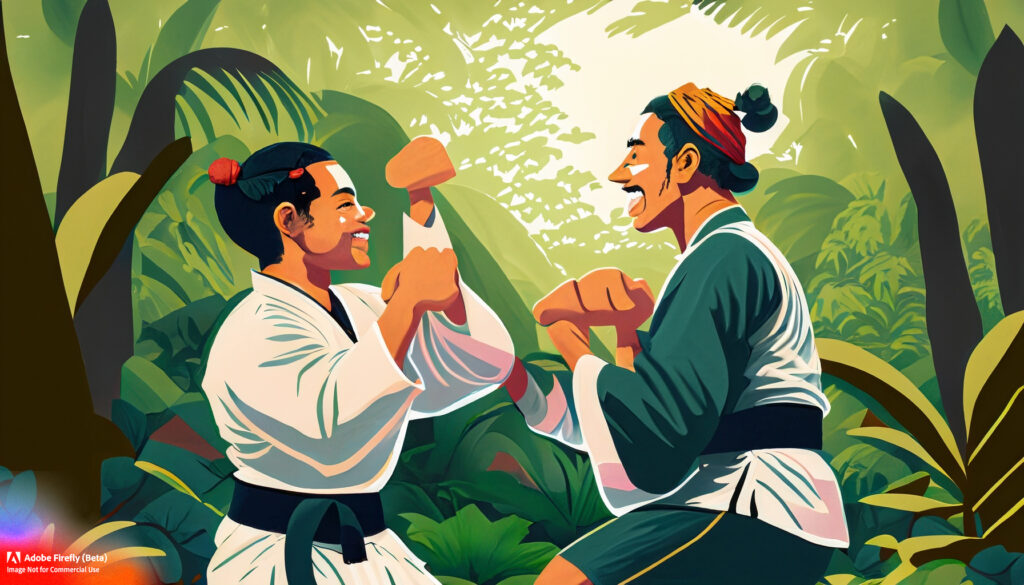Stiff-person syndrome (SPS) is a rare, chronic condition that causes muscle stiffness and painful spasms, and it impacts approximately 1 in every 1 million people1. The good news? There’s a potential warrior inside all of us that could help combat this daunting adversary: The ancient martial art of Jiu-Jitsu.
Jiu-Jitsu, a martial art hailing from Japan, concentrates on grappling. It equips practitioners with a range of physical and mental benefits, some of which might be particularly useful for those battling with SPS2.
One of the most notable perks of Jiu-Jitsu is the intense physical conditioning it offers. Regular training sessions include cardiovascular workouts, stretching, breathing exercises, and resistance work. This conditioning builds strength, endurance, and crucially, enhances flexibility2. For SPS patients, whose mobility is often compromised due to stiffness and spasms, regular exercise that promotes flexibility could potentially help manage these symptoms.
Another unique aspect of Jiu-Jitsu training is the acquisition of falling skills. Students learn how to fall without getting hurt, a skill that may prove invaluable for individuals with SPS who are prone to falls due to muscle stiffness and spasms12.
While it may seem counterintuitive, the patient and disciplined approach necessary for mastering Jiu-Jitsu could also offer psychological benefits. SPS is often associated with anxiety and agoraphobia, triggered by the unpredictability of muscle spasms. The calming influence of Jiu-Jitsu, built on patience and self-discipline, might help reduce stress and manage these psychological challenges12.
Moreover, practicing Jiu-Jitsu is enjoyable. Despite the physical intensity, the fun element could uplift spirits, promote a positive outlook, and potentially contribute to a better quality of life. As noted by Dr. Mehmet Oz, doing things you enjoy can extend your lifespan and make life more worth living2.
It’s important to note that while the benefits of Jiu-Jitsu could potentially help manage symptoms of SPS, researchers are still unraveling the mysteries of this rare condition. The exact cause is yet unknown, but it’s thought to be an autoimmune condition where the body’s immune system attacks healthy cells for unknown reasons. Some people with SPS produce antibodies against certain neurotransmitters that control muscle movement, but the exact role these antibodies play in SPS is still a subject of research1.
While Jiu-Jitsu may not directly cure or prevent SPS, its potential benefits in terms of physical conditioning, stress management, and improved quality of life could be a valuable addition to the current treatment strategies aimed at managing symptoms and improving mobility and comfort1.
Lastly, remember to always consult with your healthcare provider before beginning any new exercise regime, especially if you have a pre-existing condition like SPS. Jiu-Jitsu or any form of exercise should not replace professional medical advice or treatment, but rather complement it. Stay safe, stay strong, and unleash your inner warrior!

